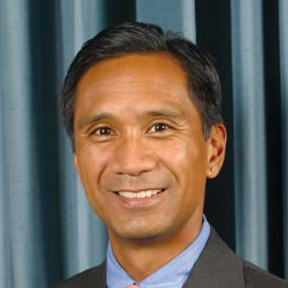Remember the 1958 science fiction flick The Blob? The movie—Steve McQueen’s first starring role—was about an alien blob of red goop that keeps growing without any apparent rhyme or reason other than to devour new and more victims along the way. The war on terrorism appears to be unfolding in a similar way.
The original goals in the immediate aftermath of Sept. 11 were threefold: (1) topple the Taliban regime in Afghanistan, (2) dismantle the al Qaeda terrorist network, and (3) find Osama bin Laden. To date, the United States has only accomplished the first goal and still has its hands full with figuring out how to deal with the messy aftermath of a post-Taliban Afghanistan (and now there are signs of the United States getting caught in the crossfire of the rival warlords jockeying for power with the interim Karzai government). The training camps in Afghanistan may be destroyed. But the al Qaeda network still exists and, according to CIA Director George Tenet, is rebuilding its operations and remains capable of mounting another large-scale attack against the United States. The trail on bin Laden has gone cold.
But instead of staying the course, the war on terrorism—like the blob—is ever-expanding. The first step was the U.S.-led training mission in the Philippines, justified on the basis that the Islamic separatist Abu Sayef guerrillas are linked to al Qaeda. But the linkage is tenuous and even Philippine president Gloria Macapagal Arroyo admits that evidence of al Qaeda in the Philippines is only up until 1995. So really the United States is just helping the Philippines take care of an internal domestic problem using military advisors in a jungle environment that is all too “Vietnamesque.”
The U.S. plan to train and equip the Georgian military is based on the belief that al Qaeda members and other Islamic extremists from Chechnya have taken refuge in the Pankisi Gorge region along the Georgia-Chechnya border. But these are terrorists that are more Russia’s problem than America’s. And clearly Georgia is using the pretext of terrorism to invite the U.S. military to protect against Russia (which supported the U.S.-led military effort in Afghanistan) and its influence over Georgian provinces seeking independence and closer ties to Russia. So it would seem that the United States may once again be drawn into what amounts to as somebody else’s civil war, which has much to do with the hatred engendered against America and sowing the seeds of terrorism.
The administration probably has it right in deciding to assist the Yemeni government. Osama bin Laden and al Qaeda are known to have operated in Yemen, which is also where al Qaeda attacked the USS Cole. Batting .300 is considered good in baseball, but the United States ought to do better in expanding the war on terrorism.
On the non-military front, the administration has announced that it has blocked the assets of 21 people with suspected links to the Basque separatist movement E.T.A., which Treasury Secretary Paul O’Neill has characterized as a terrorist organization of “global reach.” The truth is that such a description is more than a bit of a reach (and also true for other groups, such as Hamas, whose assets have been blocked).
In The Blob, Steve McQueen’s character tries to warn people about the blob, but no one believes him until it’s too late. The question is whether it’s too late to get the war on terrorism back to where it started. For the further away we get from Sept. 11, the further away the United States gets from its original objectives and the war takes on a life of it’s own. Also, the situation—like the blob—may continue to grow beyond what was supposed to be a war against terrorist groups with global reach into a global war against terrorism, even against groups that do not threaten the United States.
Not only is this a prescription for a costly war with no end in sight. But it also is a step for needlessly inciting new enemies and breeding more terrorism directed at the United States and its citizens.







